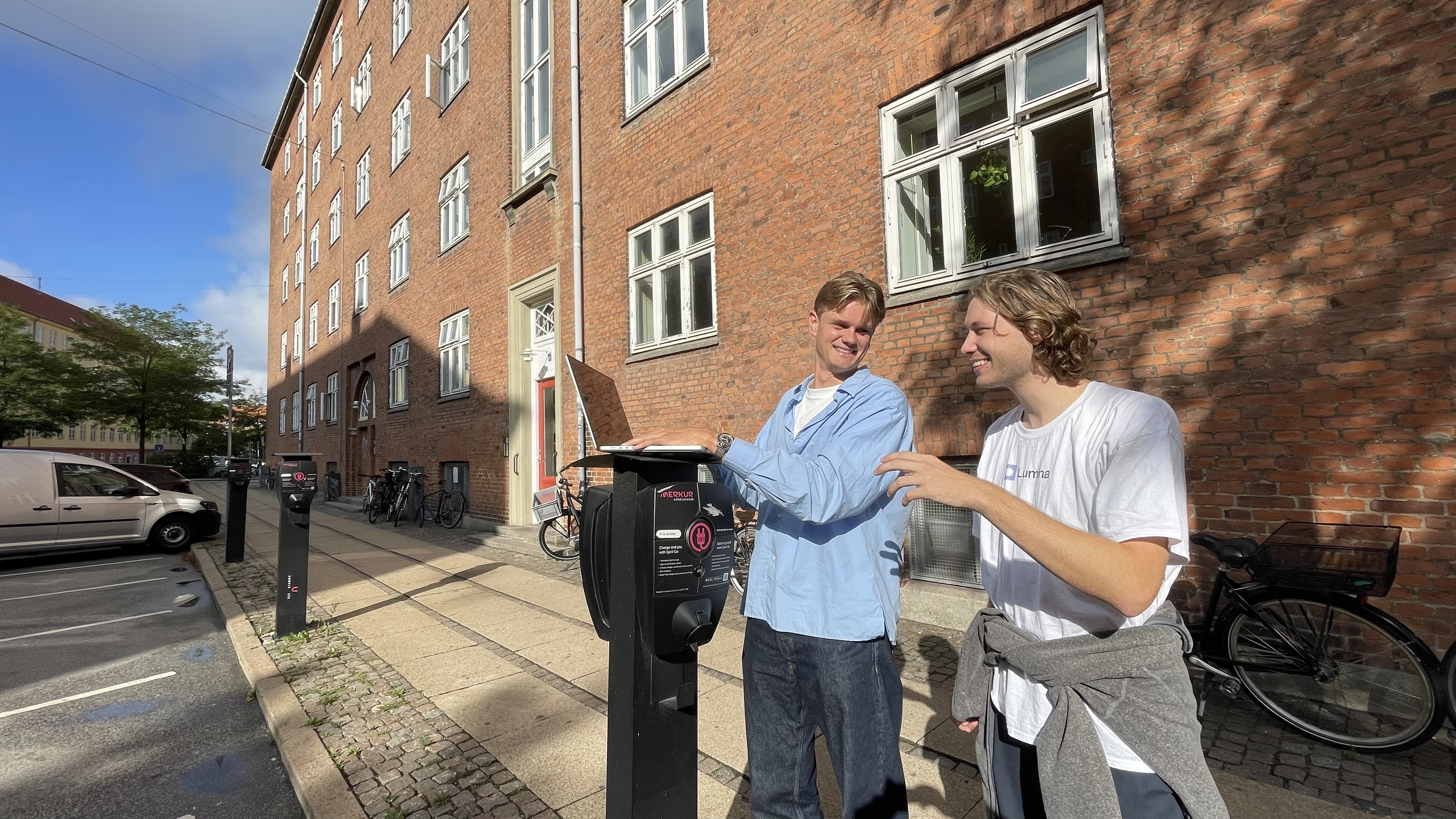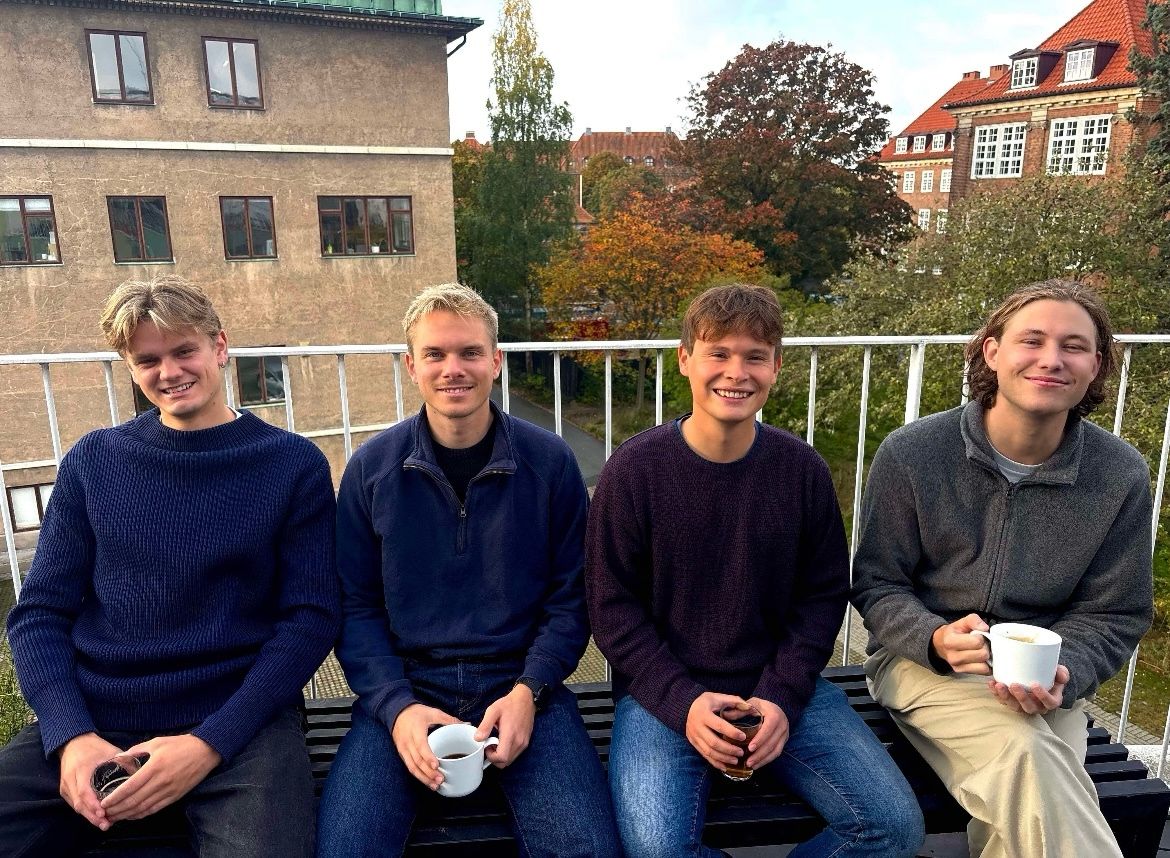We're excited to share that Innovation District Copenhagen, part of the University of Copenhagen, has featured Lumina in an article about our AI-driven approach to improving electric vehicle charging reliability.

Andreas and Mikkel at a Spirii charge point in Copenhagen
The Invisible Foundation of EV Charging
As the article highlights, most start-ups want to be noticed. However, at Lumina, we hope that those who benefit most from our product will never know they have been helped. By using custom developed machine learning models to build an intelligent foundation to improve the reliability of charge points for electrical vehicles, we hope that we can make charging your car as reliable as stopping for fuel, so the driver can focus on the road, not the charger.
Solving Real-World Problems with Data
Start-up advisors often tell would-be entrepreneurs to solve real-world problems. We were told the same. So we tried taking this advice to heart. With three computer scientists and an interaction designer on the team, we asked industries ranging from hospitals to music venues what their data-rich challenges were. Not to create a problem, but to find one.
"We were looking for a big enough problem with a big enough data-set. What really surprised us, was that all the companies we got in touch with, were incredibly open about their challenges"
- William Heuser, Partner
The Challenge: One in Ten Sessions
The average public charge point only has a 90% success rate. For an electric car driver, this means that one in ten visits to the charger may result in frustrations ranging from technical difficulties to no power after hours of charging. This provided the type of challenge that we were looking for.
"No one would ever accept ten percent down-time at a traditional petrol pump. To solve this problem, we got to work building a machine-learning system, that can read and analyse these logs."
- Mikkel Weikop, Partner
Machine learning excels at discovering patterns in huge sets of data. Our artificial intelligence can discover problems in real-time. And as it processes ever more charge point logs, it starts identifying what happens before an issue occurs. It starts predicting faults.

The Lumina team at UCPH Lighthouse
We're grateful to Innovation District Copenhagen and Jes Andersen for this feature that captures our mission and approach. It's an honor to be recognized by the University of Copenhagen community as we continue building the intelligent foundation of reliable EV charging infrastructure.
Read the full article: Innovation District Copenhagen - Student start-up improves electric mobility with AI
